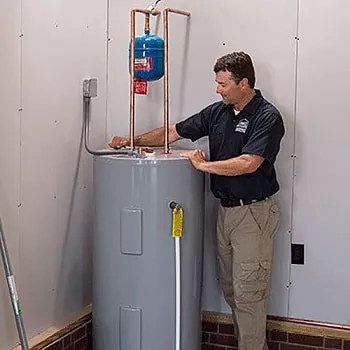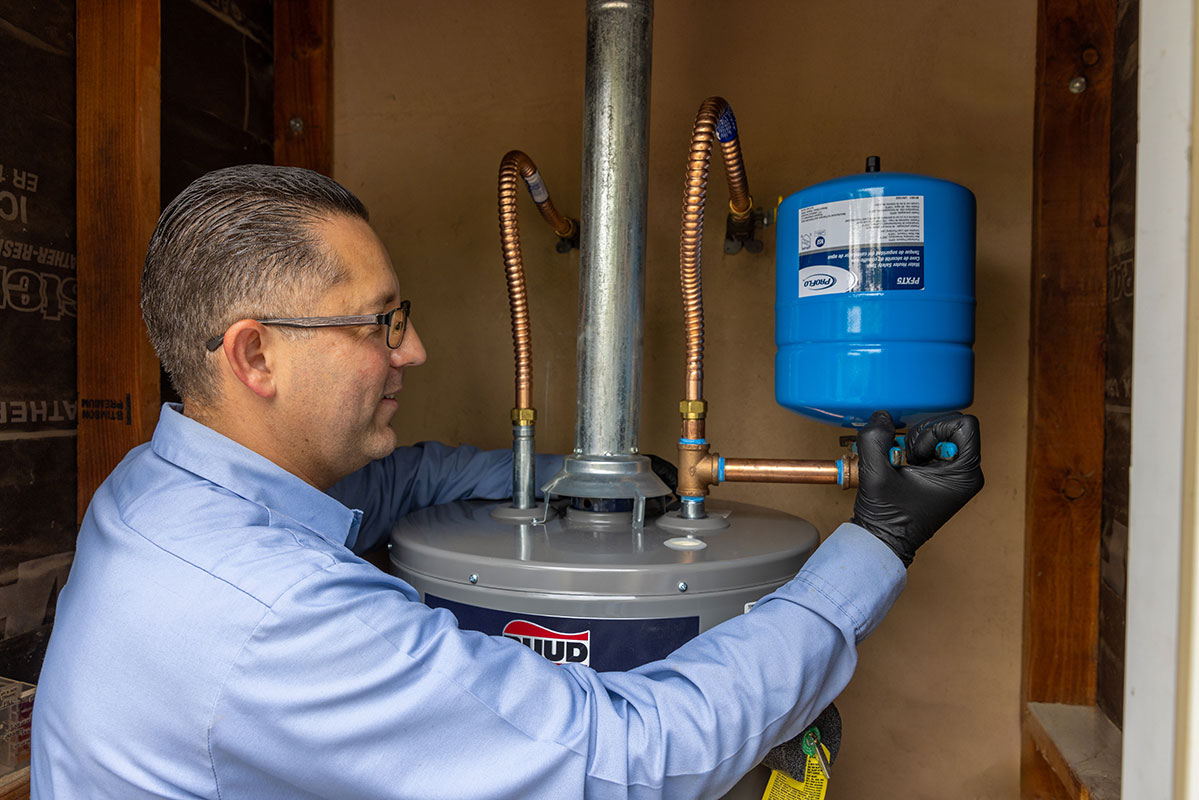Comprehensive Drain Cleaning Services to Promote Healthy Plumbing
Comprehensive Drain Cleaning Services to Promote Healthy Plumbing
Blog Article
Total Overview to Water HeaterSetup and Replacement
Comprehending the intricacies of hot water heater installation and replacement is vital for homeowners looking for to ensure effectiveness and dependability in their warm water supply. From selecting the suitable type and dimension to performing a seamless installation procedure, numerous elements must be thought about to avoid usual mistakes. This overview will certainly supply you with the necessary steps and insights to navigate the complexities of this home enhancement task, while likewise stressing critical maintenance practices that can extend the life of your system. As you check out these elements, you may discover yourself reassessing your present configuration and determining areas for enhancement.
Sorts Of Water Heating Units
When taking into consideration water heating system installment and substitute, it is vital to understand the various types of water heaters available out there. The most common types consist of container hot water heater, tankless hot water heater, warm pump water heating units, and solar hot water heater.
Tank water heating systems are traditional systems that keep a specific quantity of warm water, making them easily offered when needed. In comparison, tankless water heaters give hot water on demand, removing the need for storage.
Warmth pump hot water heater use electricity to transfer warmth from the air or ground to warmth water, providing substantial power savings however calling for even more space and certain installment conditions. Solar water heaters harness solar energy to warm water, giving an environmentally friendly alternative with possible long-term expense financial savings, although they commonly need a back-up system for gloomy days.
Comprehending these alternatives guarantees informed choices pertaining to installment and substitute, dealing with certain needs and choices.
Picking the Right Size
Selecting the appropriate dimension for a hot water heater is important to guarantee optimal efficiency and effectiveness. An unit that is also little will battle to satisfy home needs, causing inconsistent warm water accessibility and enhanced power usage. Conversely, an oversized hot water heater can lead to unnecessary energy waste and greater energy bills.
To determine the appropriate size, consider the home's optimal warm water usage. This can be computed based on the number of owners and their normal warm water demands. As an example, a family of 4 might need a water heater with an ability of 50 to 80 gallons, relying on the usage patterns, such as synchronised showers and laundry.
In addition, examine the healing price, which determines how promptly a heating unit can restore hot water after it has actually been used. For tankless designs, focus on the circulation price, measured in gallons per minute (GPM), to guarantee it satisfies the house's simultaneous need.

Installment Process Review

Following, the old system should be disconnected and gotten rid of, making sure to continue reading this comply with local codes and regulations concerning disposal. When the old unit is out, the brand-new water heater can be placed in place. This step includes connecting the water supply lines, making sure that all fittings are leak-free and protected.
After establishing water connections, it's important to link the power supply, whether electric or gas, complying with the producer's guidelines carefully. As soon as all connections are made, the system must be full of water, and the power can be transformed back on. Finally, it is essential to check for leaks and ensure the hot water heater is operating correctly before finishing the installation process.
Usual Installment Mistakes

One more constant blunder is overlooking to adhere to neighborhood codes and policies. Stopping working to stick to these standards can not only lead to security threats but may likewise result in expensive penalties or the demand for costly reinstallation.
Falling short to protect links or utilizing the wrong type of fittings can lead to leaks and water damage. By avoiding these common installation mistakes, home owners can guarantee their water heating unit runs securely and effectively, optimizing efficiency and durability.
Upkeep Tips for Durability
Proper upkeep of a water heater is important for its longevity and optimum performance. Regular inspections and maintenance can avoid pricey repair services and extend the device's lifespan. Begin by examining the temperature setup; it should commonly be set in between 120 ° F and 140 ° F for optimal power efficiency and security.
Every six months, flush the container to remove debris buildup, which can hinder home heating efficiency and trigger corrosion. To do this, switch off the heating system, connect a pipe to the drainpipe valve, and let the water run till it is clear.
Anode rods must be evaluated click now yearly and changed when they are worn away. These poles help stop container corrosion by drawing in destructive components in the water.
Additionally, inspect the stress safety valve consistently to ensure it is functioning properly. This shutoff is vital for stopping too much stress buildup within the Home Page tank.
Finally, think about arranging a specialist upkeep check every few years for comprehensive assessments and maintenance. By sticking to these upkeep ideas, house owners can significantly enhance the effectiveness, security, and life expectancy of their water heating systems, ensuring dependable warm water for many years to find.
Verdict
In conclusion, correct setup and upkeep of water heaters are essential for making certain efficiency and longevity. By comprehending these important facets, house owners can achieve a trustworthy hot water supply while lessening potential problems connected to water heating unit procedure.
Understanding the ins and outs of water heater setup and substitute is essential for home owners seeking to make sure performance and reliability in their hot water supply.Container water heating units are typical systems that store a certain quantity of hot water, making them conveniently available when needed. In comparison, tankless water heaters supply hot water on demand, removing the need for storage space. Selecting a water heater that is either as well small or also large can lead to ineffectiveness, resulting in poor hot water supply or too much power usage.
By recognizing these crucial elements, house owners can achieve a reliable warm water supply while reducing prospective problems related to water heating unit procedure. plumber Denton.
Report this page